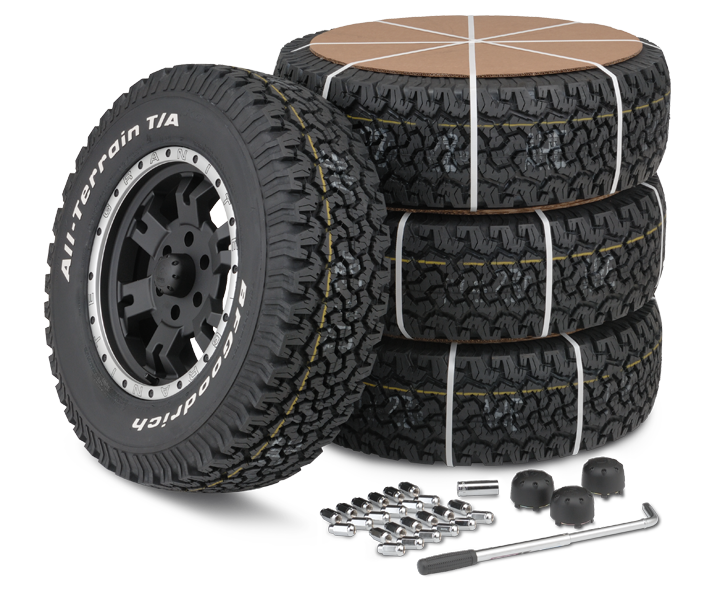Reliable Tire Shop Morris: Your Location for High Quality Tires and Services
Reliable Tire Shop Morris: Your Location for High Quality Tires and Services
Blog Article
Tire Service: The Impact of Weather
When it comes to making certain ideal performance and security on the roadway, comprehending the influence of weather problems on tire service is important. In this discussion, we will explore the elaborate relationship between climate conditions and tire service, dropping light on the importance of weather-specific tire upkeep techniques and considerations.
Heat and Tire Performance
When subjected to high temperatures, tires experience adjustments in efficiency that can significantly affect car safety and security and handling. The warmth created from long term driving or heat conditions causes the tire rubber to soften, resulting in decreased step life and boosted wear. As the rubber comes to be softer, the tire's hold when driving reduces, influencing braking distances and overall grip. In severe situations, excessive warm can even create tire blowouts, positioning a serious security risk to the car and its passengers.
Moreover, high temperatures can increase the process of tire aging, triggering the rubber to wear away extra rapidly. To mitigate the impacts of heat on tire performance, drivers need to consistently check their tire stress, rotate tires to guarantee even wear, and inspect for any kind of indicators of damages.
Winter Effects
Cold weather conditions can have a significant influence on tire efficiency and safety and security. As temperature levels decrease, tire rubber can set, causing lowered grip on icy or snow-covered roadways. In cool weather condition, tires may likewise lose atmospheric pressure much more quickly, which can affect handling and fuel performance. Furthermore, chilly temperatures can cause tire sidewalls to tense, boosting the danger of damages from holes or other road risks.
To mitigate the results of winter on tires, it is vital to on a regular basis check tire stress and inflate them to the manufacturer's recommended degrees. Utilizing wintertime or all-season tires developed for winter conditions can additionally boost traction and hold on icy or snowy roads - mopar tire service specials. Correct tire maintenance, consisting of routine examinations for wear and damages, ends up being much more essential throughout cooler months to ensure optimal performance and safety
Rainy Conditions Influence
Throughout stormy problems, tire performance and safety and security can be substantially affected by the wet roadway surfaces and minimized visibility. The step pattern of tires plays an important duty in maintaining traction on wet roads. Tires with damaged footsteps are extra prone to hydroplaning, where a layer of water develops in between the road and the tire surface area, resulting in loss of traction. To battle this, vehicle drivers should routinely evaluate their tires for adequate walk deepness and think about buying tires especially created for wet problems.

Snow and Tire Safety
Snow-covered roads present one-of-a-kind obstacles for motorists, emphasizing the significance of appropriate tire selection and maintenance. When driving in snowy problems, having the appropriate tires can make a significant distinction in safety and efficiency. Winter months tires are designed with special rubber compounds and tread patterns to provide much better grip on snow and ice compared to all-season tires. The much deeper footsteps and sipes of winter season tires help useful site grip the roadway better, decreasing the risk of moving and slipping.
In enhancement to using winter link tires, it is crucial to ensure they are effectively pumped up. Winter can create tire pressure to drop, influencing grip and handling (mopar tire service specials). Consistently checking and keeping the appropriate tire stress is important for optimal performance in snowy problems

Weather-Related Tire Maintenance
Weather-related tire this page upkeep incorporates a variety of practices intended at guaranteeing optimum tire function and durability in different weather condition circumstances. One key element of weather-related tire upkeep is tire pressure guideline. Evaluating tire walk on a regular basis and changing tires when step wear gets to a certain depth is vital for keeping grip and security in unfavorable weather condition.
Verdict
In final thought, weather problems have a significant effect on tire efficiency and safety and security (discount tires morris il). From heat affecting tire stress and wear to cold weather reducing grip, it is vital to consider the climate when maintaining and utilizing tires.
In this discussion, we will discover the detailed connection in between weather condition problems and tire solution, dropping light on the significance of weather-specific tire maintenance techniques and factors to consider.

Report this page